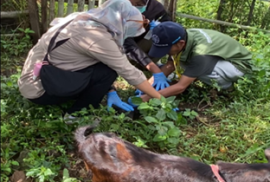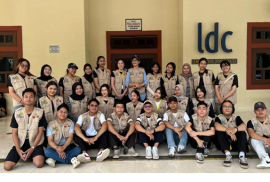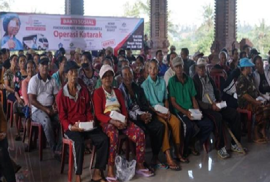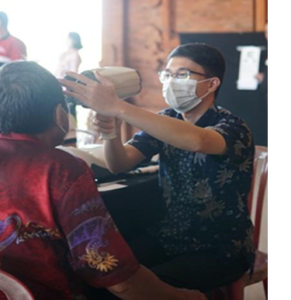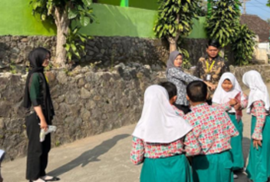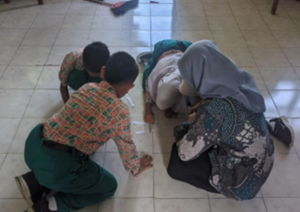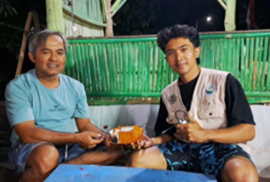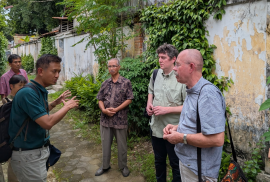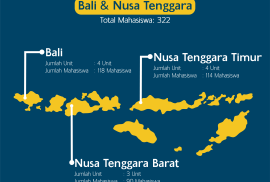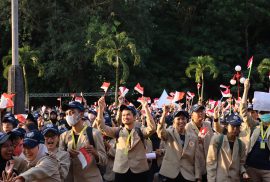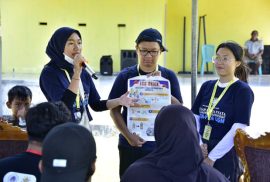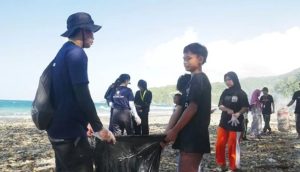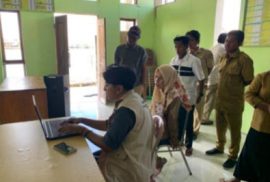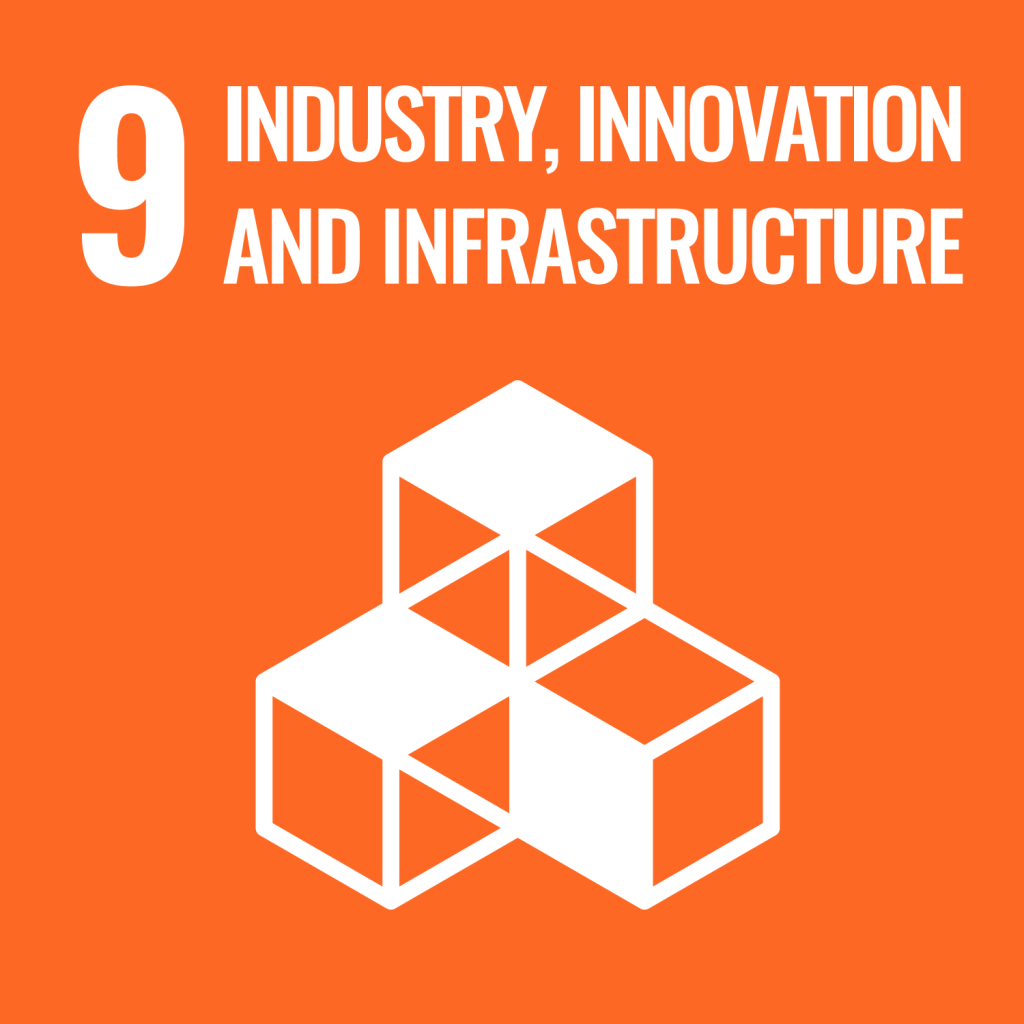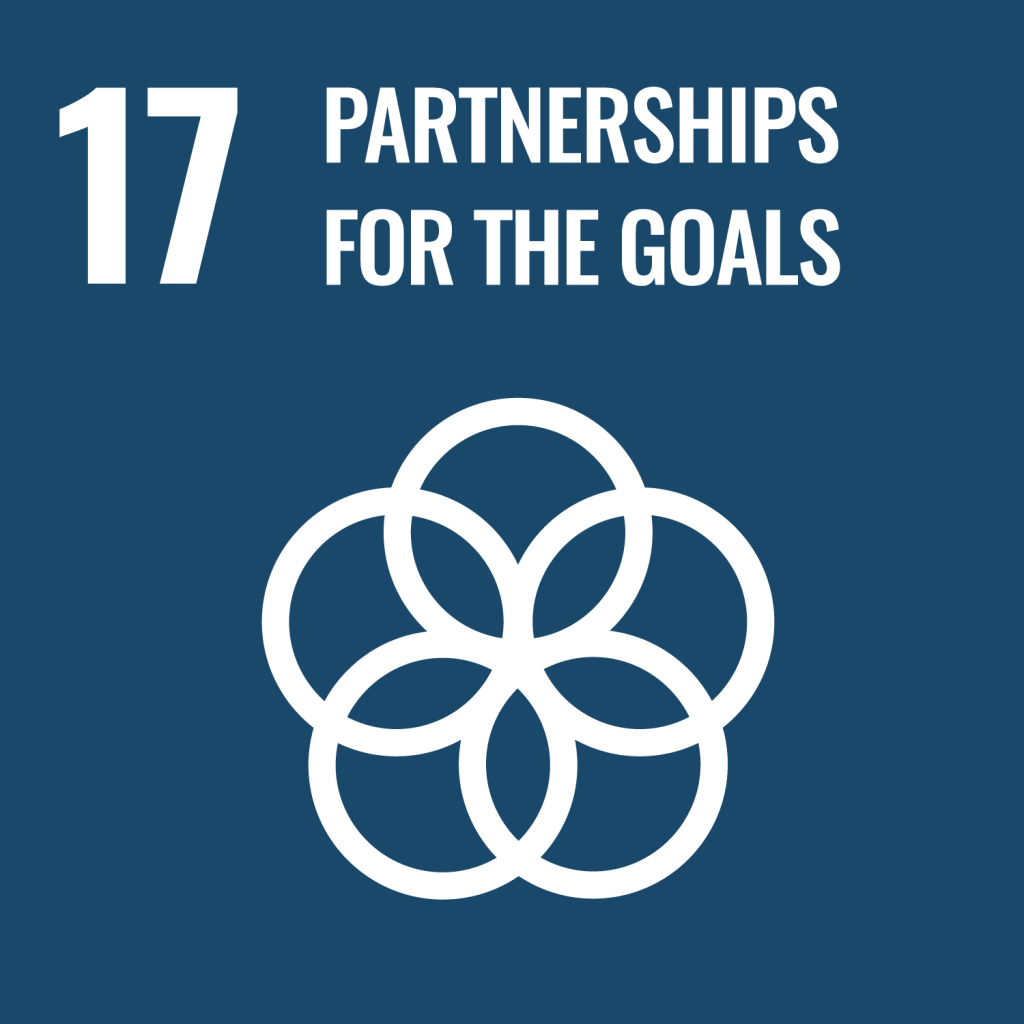The UGM students are examining one of the community livestock, a lamb, on Hiri Island
The KKN-PPM (Community Empowerment Program) students from Universitas Gadjah Mada (UGM), located in Pulau Hiri, Ternate, North Maluku, recently carried out a comprehensive health check-up for livestock in collaboration with the Ternate City Livestock Office. This initiative forms part of a larger effort to enhance livestock welfare and prevent the spread of diseases that can affect animal populations in the region.
The program saw UGM KKN-PPM students working hand-in-hand with livestock experts from the Ternate Livestock Office to conduct health checks on goats owned by local villagers. The health check-up process included essential steps such as assessing the physical condition of the goats, measuring their body temperature, and identifying any signs of disease that might require medical intervention.
Ensuring Livestock Health and Preventing Disease Spread
The primary aim of these health checks was to ensure that the livestock were in good health and free from any potential diseases. The examination results showed that the majority of goats were in healthy condition. Those who were found to be in good health were then vaccinated as a preventive measure against common livestock diseases, such as foot-and-mouth disease and parasitic infections.
In addition to the health checks, the vaccination program plays a critical role in disease prevention, ensuring that the goats remain healthy and reducing the risk of outbreaks that could negatively impact the local livestock population. If any goats displayed signs of illness during the examination, immediate medical treatment was provided. This included administering medication based on the diagnosis, which is essential for ensuring prompt recovery and preventing disease transmission to other animals.
Addressing Challenges in Livestock Management
Rangga, the team leader for UGM KKN-PPM in Pulau Hiri, highlighted the program’s significance in light of the area’s livestock management practices. “This program is especially vital because the livestock system in Pulau Hiri still relies on the ‘free-range’ method, where animals are allowed to roam freely without proper enclosures,” Rangga explained. This system presents unique challenges in managing livestock health, making regular health checks and vaccinations even more crucial in preventing disease outbreaks and maintaining the livestock population.
The initiative aims not only to improve the health of the goats but also to raise awareness among local farmers about the importance of maintaining their livestock’s health. By doing so, the farmers can improve the productivity and quality of their animals, which will ultimately benefit the local economy and improve community livelihoods.
Training and Educating Local Farmers
Along with the health checks, the KKN-PPM team also provided training and education for local farmers on proper livestock care, focusing on animal welfare practices. During the training sessions, farmers learned essential techniques for caring for goats, including providing nutritious feed, maintaining clean living spaces, and preventing diseases through proper hygiene and vaccination.
The educational aspect of the program aimed to increase the farmers’ knowledge of effective livestock management, helping them avoid common health issues that could affect their animals. The program has already had a positive impact, as evidenced by the significant improvement in livestock health in Pulau Hiri and a marked decrease in disease transmission.
A Positive and Sustainable Impact on the Community
An official from the Ternate City Livestock Office expressed their support for the initiative, saying, “We hope that activities like this can be carried out regularly, ensuring that the livestock population in Pulau Hiri stays healthy and productive, which will ultimately help the local economy.”
This program is expected to greatly improve the health and welfare of livestock in Pulau Hiri, contributing not only to the success of local livestock management efforts but also to the overall economic development of the community.
Strengthening Collaborations for Future Impact
The success of this program illustrates the importance of partnerships in achieving sustainable development goals. Through collaborations between Universitas Gadjah Mada, the Ternate City Livestock Office, and the local community, the initiative has the potential to make a lasting positive impact on the region. It is hoped that similar initiatives can be carried out regularly to support both animal welfare and community well-being, contributing to long-term development in the area.
Contributing to SDGs and Future Opportunities for International Students
This KKN-PPM initiative aligns with several key Sustainable Development Goals (SDGs), particularly SDG 2: Zero Hunger, by improving livestock health, and SDG 12: Responsible Consumption and Production, through promoting sustainable farming practices. Additionally, the program contributes to SDG 8: Decent Work and Economic Growth, by fostering the productivity of local farmers.
International undergraduate students looking to make a tangible impact in communities worldwide are invited to join the KKN-PPM program at UGM. This program offers a unique opportunity for students to apply their academic knowledge in real-world contexts, engage with local communities, and contribute to global sustainable development goals. Students from diverse backgrounds are encouraged to participate in future KKN-PPM sessions, where they can gain valuable hands-on experience while making a difference in areas like sustainable agriculture, community health, and animal welfare.
International students who participate in this initiative will have the opportunity to work alongside UGM students, faculty, and local communities, contributing to meaningful and sustainable change
Tags: SDG 2 (Zero Hunger), SDG 12 (Responsible Consumption and Production), and SDG 8 (Decent Work and Economic Growth)
Author: bil
Contributors: Alia Zahra

